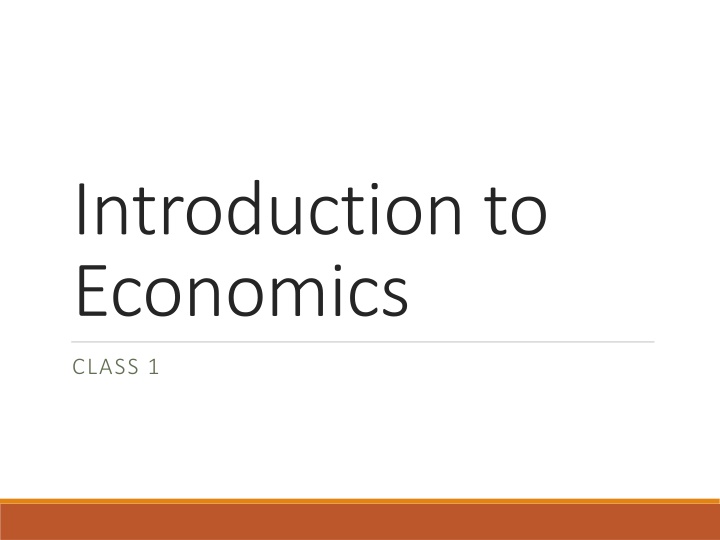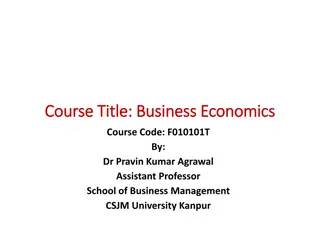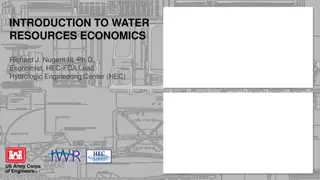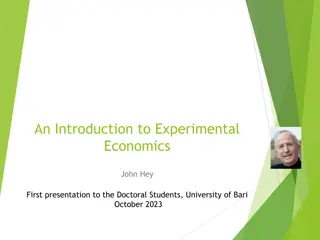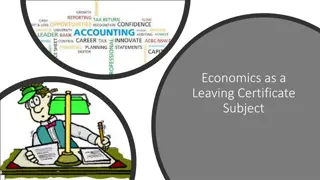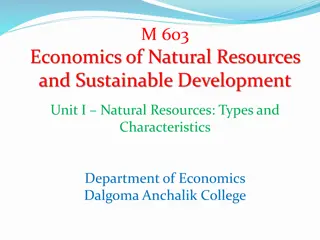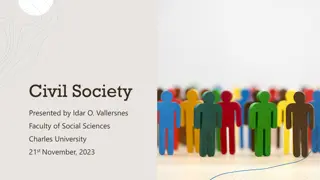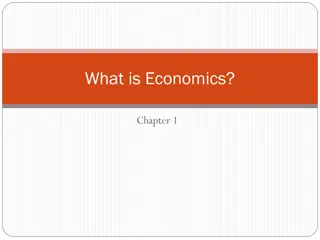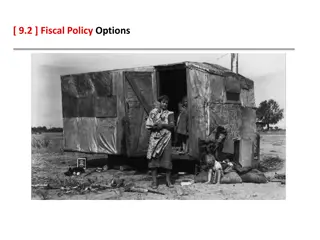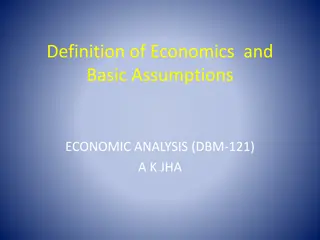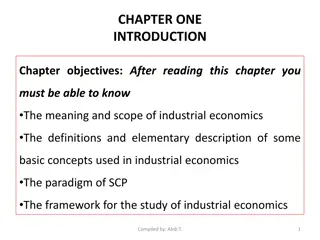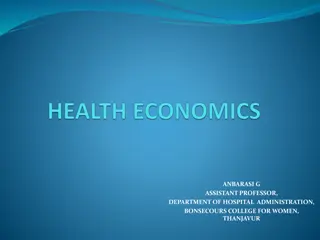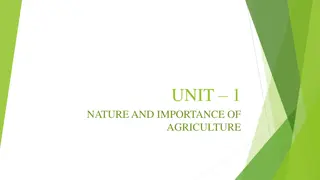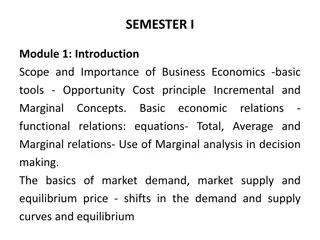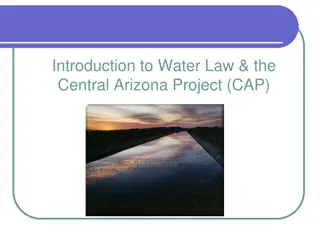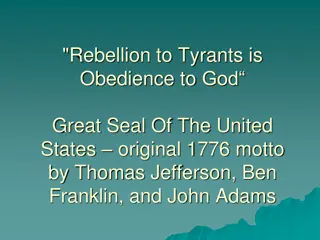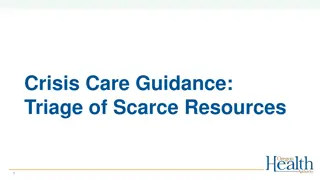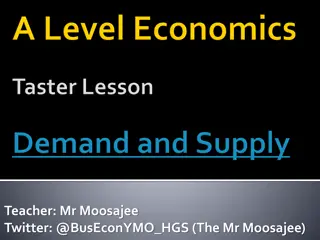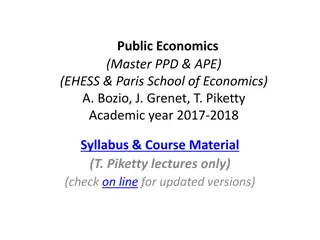Introduction to Economics: Managing Society's Scarce Resources
Economics is the study of how societies manage their limited resources due to scarcity. This includes factors of production, macroeconomics vs. microeconomics, and principles such as trade-offs. Explore the forces shaping the world we live in, from democracy to supply and demand dynamics. Learn about the importance of education, the concept of ceteris paribus, and the distinction between positive and normative economics. Delve into the fundamental questions economics seeks to answer and the impact of various factors on economic systems.
Download Presentation

Please find below an Image/Link to download the presentation.
The content on the website is provided AS IS for your information and personal use only. It may not be sold, licensed, or shared on other websites without obtaining consent from the author.If you encounter any issues during the download, it is possible that the publisher has removed the file from their server.
You are allowed to download the files provided on this website for personal or commercial use, subject to the condition that they are used lawfully. All files are the property of their respective owners.
The content on the website is provided AS IS for your information and personal use only. It may not be sold, licensed, or shared on other websites without obtaining consent from the author.
E N D
Presentation Transcript
Introduction to Economics CLASS 1
Scarcity Economics is the study of how society manages its scarce resources. Scarcity since there are limited resources all of societies needs cannot be produced Even Rich Countries have scarcity issues. Time is the scarcity, and it's the commodity we can't create any more of. Jim Mitchell
Factors that changed the world we live in Democracy The Limited Liability Company Patent Rights Literacy and Education. Education is the most powerful weapon which you can use to change the world. Nelson Mandela
The factors of production Land Natural resources Labor the mental and physical skills of individuals in society Capital tools that are used in production. Economics answers the following 3 questions What to produce? How to produce? For whom to produce?
Macroeconomics vs Microeconomics Microeconomics is a branch that studies how individuals, households and firms make decisions to allocate scarce resources. Macroeconomics is a branch of economics that deal with the performance, structure, and behavior of national and regional economies as a whole. Economics is extremely useful as a form of employment for economists. John Kenneth Galbraith
Ceteris paribus Is Latin for all other things held constant In constructive models, economists make assumptions to eliminate unnecessary details to reduce the complexity of behaviour.
Positive vs normative economics Positive economics Descriptive statements, claims how the world is. (Scientists) Normative economics Prescriptive statements claims how the world ought to be. (Policy Advisors)
Forces at play in the real world. Economic Supply and Demand Social Religion and Culture Political Governments.
10 principals of economics Principal 1 People Face Trade Offs Efficiency Getting the maximum benefit of scarce resources Equality Benefits are distributed equally amongst the population. A family is a risky venture, because the greater the love, the greater the loss... That's the trade-off. But I'll take it all. Brad Pitt
2: the cost of something is what you gave up to get it. Opportunity Cost The next best alternative that is given up when you choose something. In economics, one of the most important concepts is 'opportunity cost' - the idea that once you spend your money on something, you can't spend it again on something else. Malcolm Turnbull
3: Rational people think on the margin. Rational people people who systematically and purposefully do the best they can do to achieve their objectives. Marginal changes small incremental adjustments to a plan of action. Marginal Benefit > Marginal Cost = decision will be made.
4: People respond to incentives. Incentive something that induces people to act. Unintended consequences. Call it what you will, incentives are what get people to work harder. Nikita Khrushchev
5: Trade can make everyone better Country X produces 10 apples and has $100 Country Y produces 10 oranges and has $100 Both apples and oranges cost $10 each Country X wants 3 oranges Country Y wants 7 apples. Everyone benefits with trade.
6: Markets are usually a good way to organize economic activity. Market economy Competitive market Command economy Soviet style economics Government decides what/how/to whom
7: Governments can sometimes improve market outcomes. Market failure a situation in which a market left to its own fails to allocate resources efficiently. Government's first duty is to protect the people, not run their lives. Ronald Reagan
8: a countrys standard of living depends on its ability to produce goods and services. Productivity: the quantity of goods and services produced by each output of labor. The only way to increase the standard of living is through increasing productivity. The productivity of work is not the responsibility of the worker but of the manager. Peter Drucker On my desk I have three screens, synchronized to form a single desktop. I can drag items from one screen to the next. Once you have that large display area, you'll never go back, because it has a direct impact on productivity. Bill Gates
9: Prices rise when the government prints too much money. Inflation: An increase in the overall levels of prices in the economy. Inflation is when you pay fifteen dollars for the ten-dollar haircut you used to get for five dollars when you had hair. Sam Ewing
10: society faces a short run trade off between unemployment and inflation. Inflation occurs when the government prints money. When money is created there is a need to spend it which thereby increase demand. Higher demand means that firms can charge more, and in the short run encourages firms to higher more employees. More hiring = lower unemployment.
Thank you See you next week!
